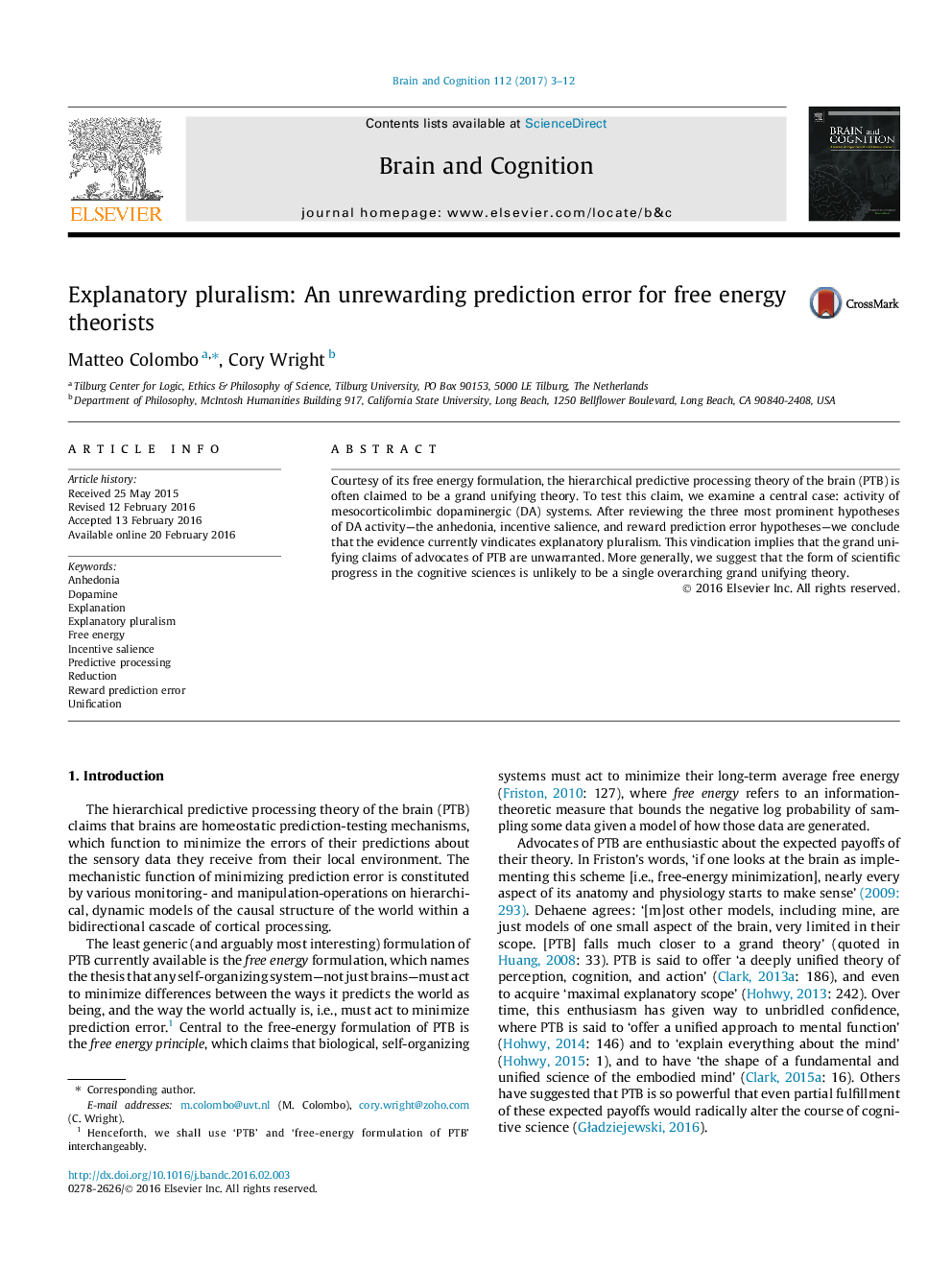| کد مقاله | کد نشریه | سال انتشار | مقاله انگلیسی | نسخه تمام متن |
|---|---|---|---|---|
| 5041094 | 1473959 | 2017 | 10 صفحه PDF | دانلود رایگان |
- The hierarchical predictive processing theory of the brain is not a grand unifying theory.
- Reward and value should not be absorbed into free-energy.
- Explanatory pluralism is vindicated by the current hypotheses of dopaminergic activity.
- Scientific progress in the cognitive sciences is unlikely to come in the form of a single overarching grand unifying theory.
Courtesy of its free energy formulation, the hierarchical predictive processing theory of the brain (PTB) is often claimed to be a grand unifying theory. To test this claim, we examine a central case: activity of mesocorticolimbic dopaminergic (DA) systems. After reviewing the three most prominent hypotheses of DA activity-the anhedonia, incentive salience, and reward prediction error hypotheses-we conclude that the evidence currently vindicates explanatory pluralism. This vindication implies that the grand unifying claims of advocates of PTB are unwarranted. More generally, we suggest that the form of scientific progress in the cognitive sciences is unlikely to be a single overarching grand unifying theory.
Journal: Brain and Cognition - Volume 112, March 2017, Pages 3-12
